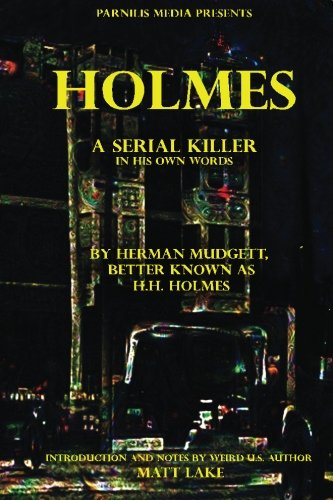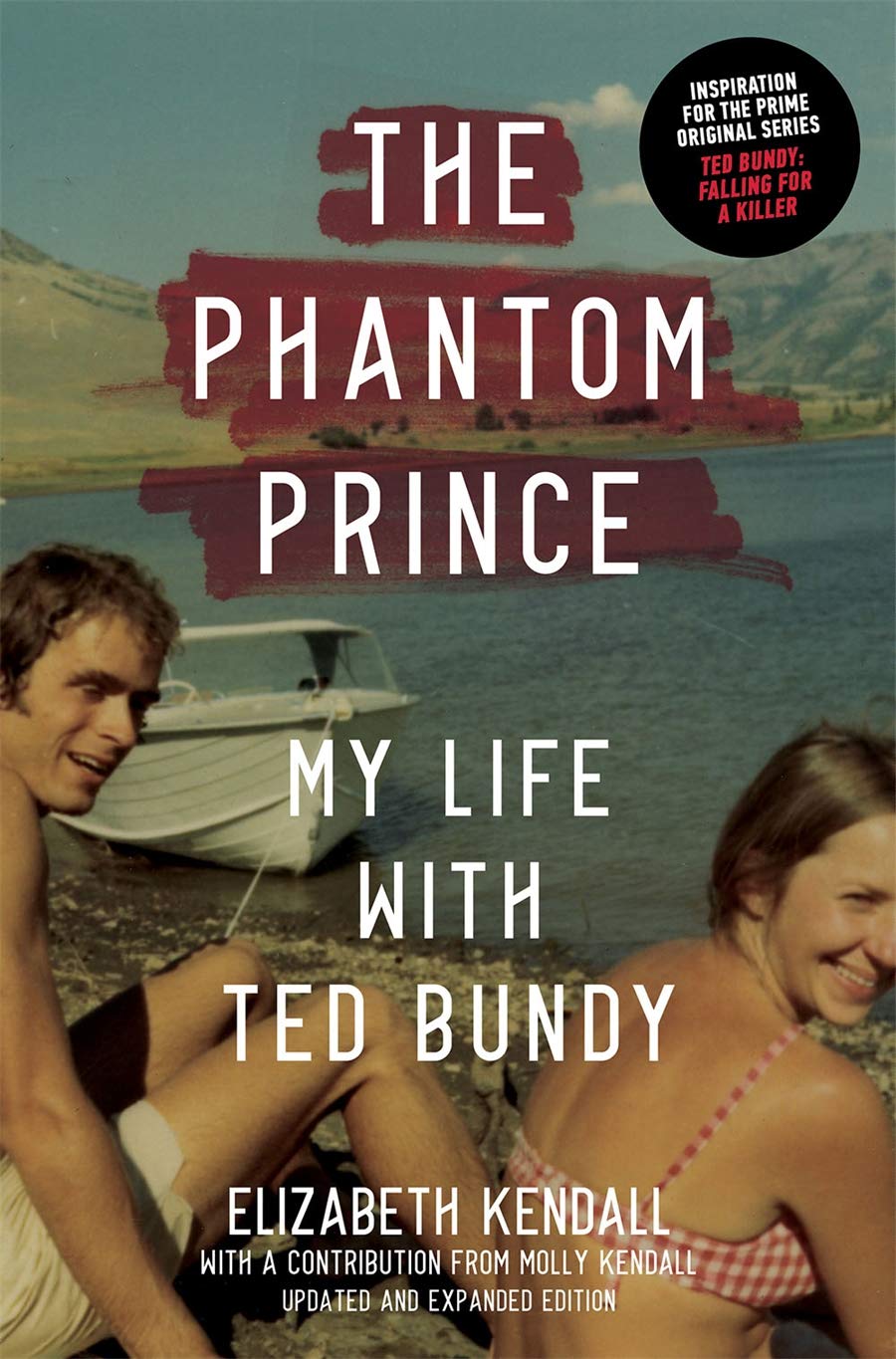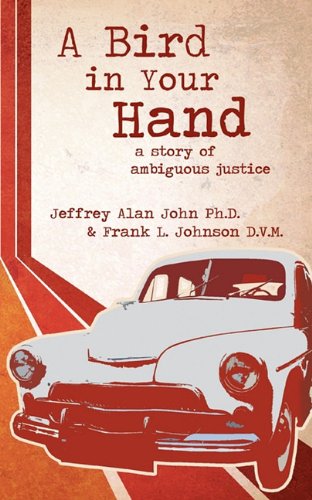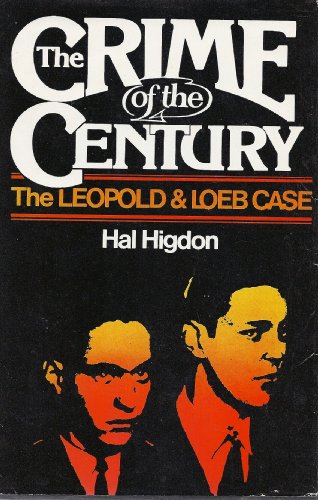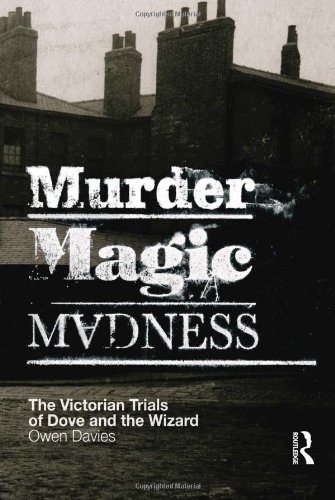
True Crime Studies: “Murder, Magic, Madness” recounts a very strange crime in a very strange time
More Videos
Published
4 years agoon
By
Rachel RothPenned by Owen Davies, a historian on modern and contemporary witchcraft, Murder, Magic, Madness: The Victorian Trials of Dove and the Wizard is the perfect book for anyone that lives for the cold hard facts. That’s primarily what this book is. There are no real theories or opinions or deep psychological analysis. Everything recounted in Murder, Magic, Madness is documented in history and told with about as much charisma as a technical manual. Not saying that the book is bad, or boring, only that it feels a bit like an Encyclopedia.
I am impressed with the amount of information that Davies gives though. There’s very little detail about this crime available, which means Davies must have worked mega hard on his research. It’s admirable, the amount that he shares, but it’s a shame that he writes it with such frankness.
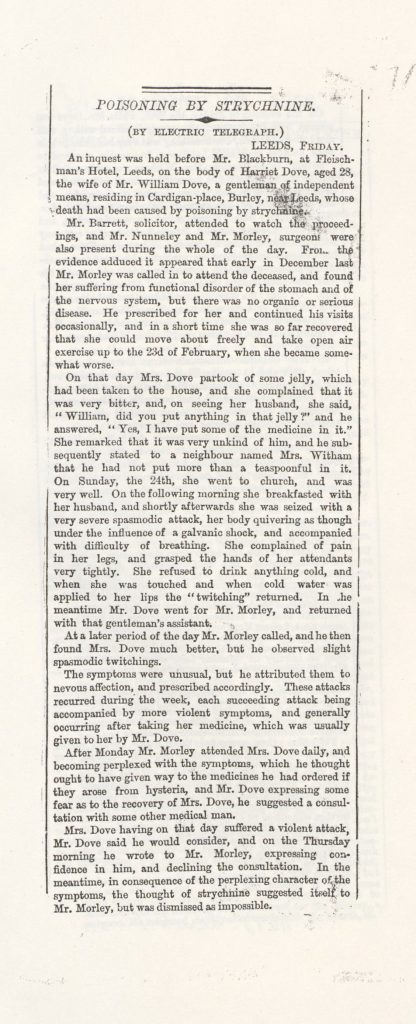
In 1850s England, in a time when people were living between magic and science, there was a man named William Dove who murdered his wife Harriet, and he wasn’t at all discreet about it. Dove was an interesting fellow. Raised by devout Methodists that dotted on him, William was a true problem child that grew into an even more difficult adult.
Although there weren’t many proper diagnoses available during this time, it’s possible that the man had both a mental illness and a learning disability. He had violent mood swings that came without warning and seemed incapable of grasping a concept if too complicated. The author assumes he had Type 1 Bipolar Disorder and the theory certainly matches up with Dove’s many symptoms.
Dove struggled through adulthood, until one day, he meets a woman who falls in love with him. A strange woman with a presumably equally unpredictable temper named Harriet, and these two had a strange marriage. Of course, none of their home life is discussed in great detail but pieced together through first-hand accounts. House servants, neighbors, and friends who all describe the relationship as being like that of Frank and Monica from Shameless. A mix between extremely happy, extremely sad, childlike puppy love and violent explosions, up until the day that Dove decided to kill her.
Cunning Folk
The beginning of Dove’s demise started with Henry Harrison, a cunning-folk, and a real do**hebag. Cunning-folk were “professional” practitioners of magic in Britain. They were basically fortune-tellers and fake wizards that called themselves doctors. Obviously, most were frauds. The ones that weren’t could just be called herbalists. They were popular during a time when science was getting difficult to swallow and a lot of people found comfort in magic. Life was hard and, like religion, magic let people hold on to the belief that they held some kind of power over their life.
Davies actually wrote another book all about cunning-folk titled Popular Magic: Cunning-folk in English History so if you ever want to know more you can check that out.
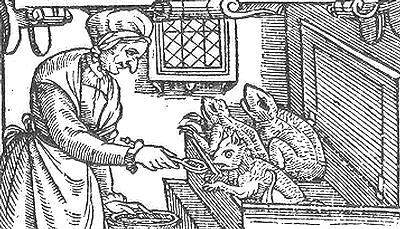
Harrison was a cunning-folk who lived near the Dove’s and quickly became a person of great fascination for William. According to Murder, Magic, Madness, cunning-folk were often used to track down stolen possessions, which is how the two men supposedly met. Dove was mighty impressed with Harrison’s “skills” and started seeing him for other problems which included domestic issues, particularly involving his wife.
It was technically Harrison’s idea to kill her, but Dove needed no persuasion to go along with the plan. To get him on board, Harrison promised Dove that after Harriet died, fate would see him remarry a new wife who would not only be more beautiful but also rich. Harriet wasn’t exactly a “Stepford Wife”. She talked back, had a temper, and fought her husband’s raging alcoholism. So hearing that he was soon due a new and younger wife, Dove spurred into action and he slowly started the process of poisoning Harriet with strychnine.
Immediately after she got sick, he proceeded to go around the town and make sure he looked as guilty as humanly possible. I’m going to be honest, this whole section of the book had me in hysterics. The things Dove did to make sure he wouldn’t be suspected could’ve made it on the list for the world’s dumbest criminals. It took several days for Harriet to die, as he would give her numerous doses of poison, but every time she showed signs of improvement, Dove would straight up tell people she was going to die. Her doctors and friends came to check-in, and cheer at the color returned to her cheeks, only for Dove to walk in the room and just start talking about funeral arrangements. He even went to the coroner, or the equivalent of one back then, and ask if there was any chance that an autopsy wouldn’t be performed on Harriet.
You’d almost think he was trying to get caught, or maybe he was just that stupid. By the time someone suspected something it was too late. Harriet was dead and it wasn’t an easy passing. She clearly suffered and Dove never got this new wife he was promised. Instead he got shackled and carried off to the jailhouse.
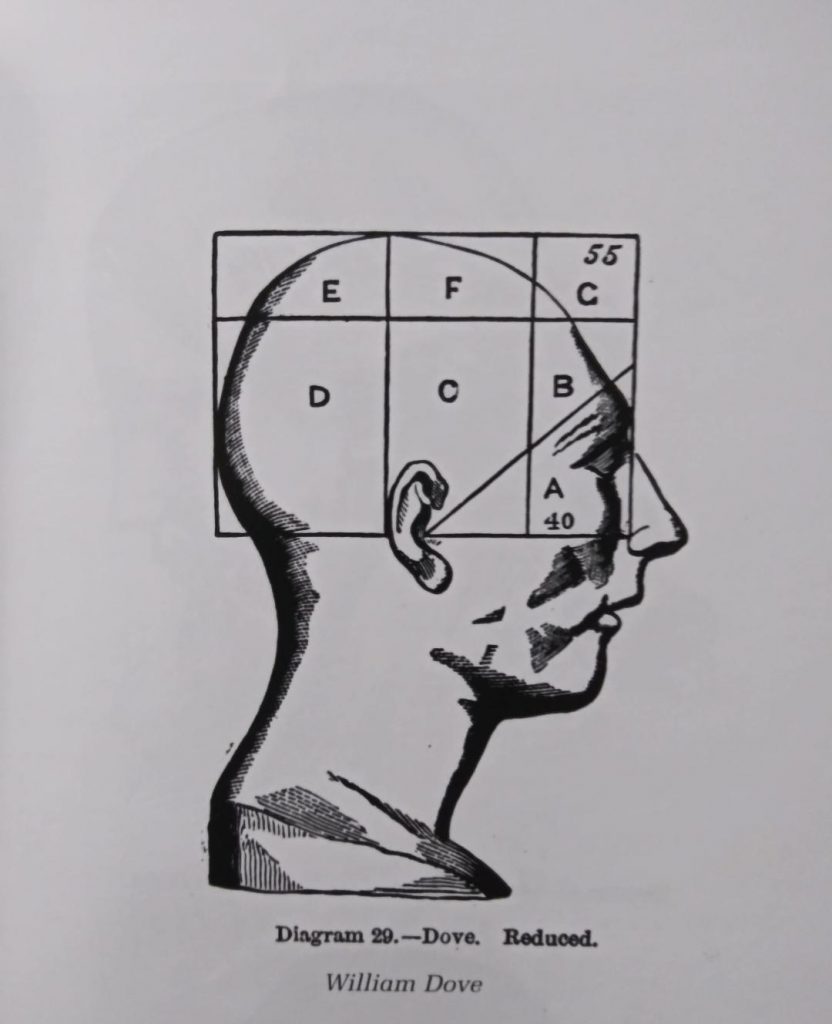
I have my own theory about why Harrison suddenly suggested that Harriet be killed and it involved the custody of a walking stick. Harriet and Harrison made no attempts to hide their apparent distaste for one another but it was only after Dove decided to gift his wizard friend his own personal walking stick that the relationship turned dangerously sour. When Harriet found out her husband gave his walking stick away to a quack she demanded he that get it back. She even went over to Harrison’s house to forcibly reclaim it. Eventually, she succeeded and Dove got his stick back, but not before Harrison carved his initials into the handle. Almost immediately after this dispute is when the plan to kill Harriet started taking form. Meaning there’s a strong chance Harrison made the suggestion all out of spite. Don’t come between two men and their gift exchange.
Trial and aftermath
I’m actually shocked by how thin Murder, Magic, Madness is considering how jammed back it is. It crams in as much as it can in under 300 pages and a lot of it has to do with the murder trial. This takes up most of the book, which might be why I often found myself bored with it. I hate everything about court. One of the reasons why I can never finish a John Grisham novel.
Most of the court sections feel like a transcript; “characters” pop in one after another, every defense and every argument is summed up to its bare minimum, letters written by Dove are presented as well as statements made by witnesses. There’s the introduction of the insanity defense which just introduces several passages of experts arguing over Dove’s mental state with some claiming he was totally deranged and others assuming he was mentally handicapped. It was a “moral insanity” versus “moral idiocy” debate with a few crying out “inborn imbecility.”
It doesn’t end there though. Midway through the trial, Dove attempted a deal with the Devil that he just stole word for word from Goethe’s rewrite of Christopher Marlowe’s play The Tragical History of Doctor Faustus. It’s probably the weirdest detail of this story, right along with that walking stick. In the end, Dove was declared guilty and sentenced to hang. Harrison was then tracked down and charged for a multitude of offenses after his past was dug up and people discovered his many past deeds.
No one remembers William Dove today, nor Henry Harrison, but they definitely had an impact on history. Harrison caused a surging fear of intellects while Dove created a reluctant acknowledgment of insanity in relation to crime among the middle and upper class. Why Dove did what he did is never 100% understood as it’s a crime that happened 164 years ago and despite his eagerness to get Harriet out of the picture, I personally got the feeling that Dove wasn’t completely aware of the fact that poisoning Harriet would have resulted in a dead wife. There was a theory that he really believed Harrison’s prediction about Harriet’s death and that by poisoning her he was only speeding up fate.
Either way, Murder, Magic, Madness is a big court transcript sandwiched between two history lectures. Slightly boring, a bit monotone, but you’ll come away with a new look at the evolution of crime. Especially the change in shock value. Two quotes from two newspapers of that time: “This miserable story of folly and of crime goes beyond the boundaries even of fiction”- Western Flying Post, and “…a stranger story than his never passed human lips”- The Leeds Times. Imagine how scandalized they’d be if they could see some of the murder cases going on today.
 (3 / 5)
(3 / 5)
Related posts:
- True Crime Studies: Leopold & Loeb and the Crime of the Century
- True Crime Studies: “A Bird in Your Hand” is probably the borest true crime book I’ve ever read
- True Crime Studies: Another side of Ted Bundy is shown in Elizabeth Kendall’s ‘The Phantom Prince.’
- True Crime Studies: A Serial Killer in His Own Words by H.H. Holmes
Rachel Roth is a writer who lives in South Florida. She has a degree in Writing Studies and a Certificate in Creative Writing, her work has appeared in several literary journals and anthologies. @WinterGreenRoth

You may like
-
True Crime Studies: A Serial Killer in His Own Words by H.H. Holmes
-
True Crime Studies: Another side of Ted Bundy is shown in Elizabeth Kendall’s ‘The Phantom Prince.’
-
True Crime Studies: “A Bird in Your Hand” is probably the borest true crime book I’ve ever read
-
True Crime Studies: Leopold & Loeb and the Crime of the Century
Book Reviews
The Hotel: We’ll All Be There Soon.
Published
2 weeks agoon
March 17, 2025By
C M ReidDaisy Johnson’s, The Hotel is a collection of stories that tell the tale of a hotel built on cursed land. Originally written and recorded as a series for BBC Radio 4 in 2020, (you can find the recordings here https://www.bbc.co.uk/programmes/m000mrcg/episodes/player )
The fourteen-story collection was released in hardcover in 2021. Johnson’s prose is haunting, weaving together the stories of generations of families who have been tempted, forced, or serendipitously dumped at The Hotel. Most leave the message, “I’ll be there soon,” and many disappear from room 63.
- ‘The British literary heir to Stephen King’ Johanna Thomas-Corr, Sunday TimesA triumph of contemporary horror from the Booker Prize-shortlisted author, this collection of short stories will haunt you long after you turn the final pageA place of myths, rumours and secrets, The Hotel looms over the dark Fens, tall and grey in its Gothic splendour
- Built on cursed land, a history of violent death suffuses its very foundations –yet it has a magnetism that is impossible to ignore
- On entering The Hotel, different people react in different ways
Last update on 2025-03-17 / Affiliate links / Images from Amazon Product Advertising API
The Plot.
The Hotel tells the stories of the people who are drawn to The Hotel, or, more accurately, the ground the hotel is built on. The first story explains what we know about the hotel, its tendencies, moods, and … hobbies. We are then introduced to Mary Southgraves, ‘The Witch’, who comes to live with her husband on the land on which The Hotel will be built. The villagers in the pond drown her for predicting a sickness that takes the village children, (no this is not a spoiler she tells you she dies on the first page of her chapter.)
The proceeding chapters build upon this story. We meet the workers who are brought in to fill the pond to begin construction. A child of a guest in 1968 who meets another girl who may or may not actually be there. A maid who takes part in séances and Ouija board sessions. The stories progress through time into the present.
Highlights.
The haunting prose of The Hotel does the majority of the heavy lifting for this collection, which makes sense since it began as a podcast series. Johnson’s prose leans towards poetry, albeit more Poe than Keats.
The repetition of specific characters and family names throughout the different stories was intriguing, giving the stories links. These links trigger a sense of recognition for the reader. There is also a sense of anticipation, knowing what has happened to these families already, we wonder how much more they can withstand. The Hotel is like a curse following these families, but I think Johnson is commenting on lineage and the consequences of past actions. The sins of the father and all that.
- Fifteen highly original and darkly unsettling supernatural stories, performed by some of Britain’s finest actresses ‘This is what we know about The Hotel
- It is bigger on the inside than on the outside
- Do not go into Room 63
Last update on 2025-03-17 / Affiliate links / Images from Amazon Product Advertising API
Drawbacks.
These stories can get confusing at times and I think this is due to the briefness of the stories. It’s hard to keep track of a character that you have spent four pages with and remember them three stories later. I found myself having to stop and turn back to check if that person was who I thought they were. This pausing to turn back interrupts the reading experience. It pulls you out of the story and destroys the atmosphere that Johnson has worked to create.
The Final Take.
The Hotel was an interesting read. Johnson is a talented writer who has published a collection of linked stories that will keep the reader turning pages if only to find out the final fate of these families. That being said, it is obvious that the stories were initially written for a podcast. I’m not sure if it’s the way they are put together or… I don’t know, there’s just something ‘podcasty’ about them. As such I would recommend listening to the audio episodes (see the link above) over reading the book.
 (3 / 5)
(3 / 5)
On Halloween in 2016 Josh Malerman, author of Bird Box, released A House At The Bottom Of A Lake (gosh this is a hefty title!). Last week, I picked this slim book up off my library’s Adult Horror shelves, not knowing what to expect. What I got was a novella that should have been shelved in the teen lit section. Perhaps it is the rather weird underwater sex scene that precludes it from those shelves.
- From the New York Times bestselling author of Bird Box and Malorie comes a haunting tale of love and mystery, as the date of a lifetime becomes a maddening exploration of the depths of the heart
- “Malerman expertly conjures a fairy tale nostalgia of first love, and we follow along, all too willingly, ignoring the warning signs even as the fear takes hold
- ”—Lit Reactor The story begins: young lovers, anxious to connect, agree to a first date, thinking outside of the box
Last update on 2025-03-10 / Affiliate links / Images from Amazon Product Advertising API
The Plot.
When James asks Amelia out on a date during summer break, canoeing was the last thing that she expected. Borrowing his uncles canoe, James hopes he can show Amelia an exciting time, because he really likes this girl! The date starts well and the conversation, if stilted at times, is banter-ey and cool.
They head out on the first lake, but James has an idea that they might have a better time on the lake that joins to this one. It is quieter, no speed boats to show him up, they’ll be able to eat their picnic lunch in peace and quiet. When they arrive, though, they notice a tunnel, that may lead to a third lake. Eager to show Amelia that he is an exciting kind of guy, James heads through the tunnel.
Lo and behold, it is another lake! Albeit, a bit murky and deserted, but that’s alright. That is until they notice that beneath the bow of the boat is a tiled roof. Beneath that tiled roof is a whole house. What ensues is a summer of falling in love and exploring a sunken house that may not be as empty as they thought.
Highlights.
Malerman writing the internal monologue of an angsty seventeen-year-old on a first date is one of the most authentic things I’ve read for a long time. Even down to James worrying about revealing that his dad owns the hardware shop he works in. Scared that Amelia will think that is all he is going to do with his life.
The ending (which of course I cannot discuss here) was well done, although a little contrived and predictable. It felt as if it had been almost tacked on the end as an afterthought. Perhaps Malerman finished the story without the final chapter, but was encouraged to add that last bit to give readers some closure
- “A book that demands to be read in a single sitting, and through the cracks between one’s fingers
- There has never been a horror story quite like this
- Josh Malerman truly delivers
Last update on 2025-03-10 / Affiliate links / Images from Amazon Product Advertising API
Drawbacks.
Malerman is a good writer, we have seen this in the many novels he has released since Bird Box. A House At The Bottom Of A Lake did not meet the usual standard. There are many reasons I say this. The first is a lack of creativity in descriptive passages in this book. They all felt pretty drab and began to become repetitive by the end of the story. I don’t know how many, times Malerman compared the way that James and Amelia were moving under the water in their scuba suits as ‘Astronaut-like’ or ‘Astronaut-esque’ or ‘ Like he was walking without gravity’, but really can you find another comparison please because this one is all used up!
As I mentioned in the intro, this did feel like a YA novel. Not only because both of the main characters are seventeen, but the prose is a too simple to be engaging. A House A The Bottom Of A Lake might be marketed differently in Australia (where this humble reviewer lives), perhaps making it to the YA shelves in the US or UK, but this is definitely not adult horror.
The Final Take.
Josh Malerman is a favorite of mine. I tend to pick up his books, blurb unread, because I will generally enjoy what he is putting out there. The exception to this rule is A House At The Bottom Of A Lake (if I never have to type that title again I will be pleased!). It just didn’t hit the way his other novels have and I was disappointed.
 (2 / 5)
(2 / 5)
Imagine this. You’re home alone, waiting for your partner to return, when you hear a knock on your door. You answer it to see a family of five, bundled up against the cold. The father, a kindly older gentleman, explains that he used to live in this house as a boy. And he would love to show it to his family.
Do not let them in.
The story
Released in June 2024, We Used To Live Here is author Marcus Kliewer’s debut novel. It tells the story of Eve, who just purchased a beautiful house with her partner, Charlie. Their plan is to flip the house and sell it.
One night, while waiting for Charlie to come home, Eve is surprised by a knock at the door. It’s a man named Thomas Faust and his family.
Thomas explains that he grew up in the house and hasn’t been in the area in years. Would Eve let them in so that he can show the home to his children?
Against her better judgment, Eve lets them in. She regrets this almost at once when Thomas’s daughter vanishes somewhere into the house.
What worked
I always appreciate a book that allows you to play along with the mystery. And this book does that better than just about any other I’ve seen.
Pay close attention to the chapters, to the words that aren’t there. To everything about this novel.
This is mostly down to Kliewer. This is ultimately his work of art. But the production value is also fantastic. I don’t want to ruin the multiple mysteries, so I’ll just say this. There are clues in this book that require some specific artistic choices in the page layouts in this book. And I loved that.
If you’d like to experience another horror book review, check out this one.
We Used To Live Here is also the kind of story that makes you question everything right along with the main character, Eve. Eve is a great main character. But she might be an unreliable narrator. She might be experiencing every single horror described, exactly as it’s described. Or, she might be having a psychotic breakdown. Through most of the book, we can’t be sure. And that is so much fun.
Finally, the weather plays a large part in this story. There are several stories in which the weather or the land itself could be considered a character. Even an antagonist. This is certainly one. The winter storm is the thing that traps the family in the house with Eve. It also makes escaping the home difficult. Reading this book during the winter was especially impactful. Most of us know what it feels like to be shut in by a storm. I’ve personally lived through some of those storms that are just referred to by their year, as though they were impactful enough to claim the whole 365 days for themself. And that was with people I liked. Imagine what it would feel like with strangers. It’s a staggering thought and one that we explore in depth in this book.
- Get Out meets Parasite in this eerily haunting debut and Reddit hit—soon to be a Netflix original movie starring Blake Lively—about two homeowners whose lives are turned upside down when the house’s previous residents unexpectedly visit
- As a young, queer couple who flip houses, Charlie and Eve can’t believe the killer deal they’ve just gotten on an old house in a picturesque neighborhood
- As they’re working in the house one day, there’s a knock on the door
Last update on 2025-03-08 / Affiliate links / Images from Amazon Product Advertising API
In the end, We Used To Live Here is a fantastic book. It’s the sort of story that sneaks into your brain and puts down roots. And if this is just the first book we’re getting from Kliewer, I can’t wait to see what else he comes up with.
 (5 / 5)
(5 / 5)

